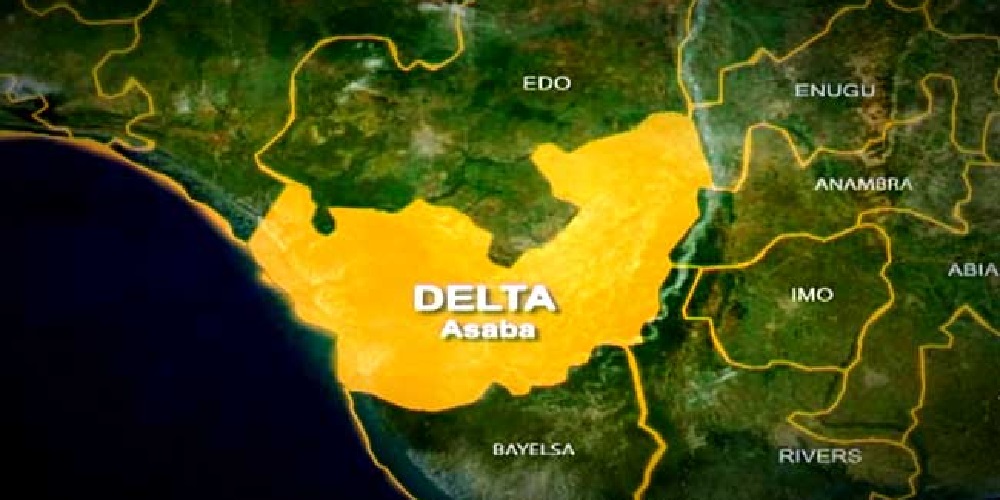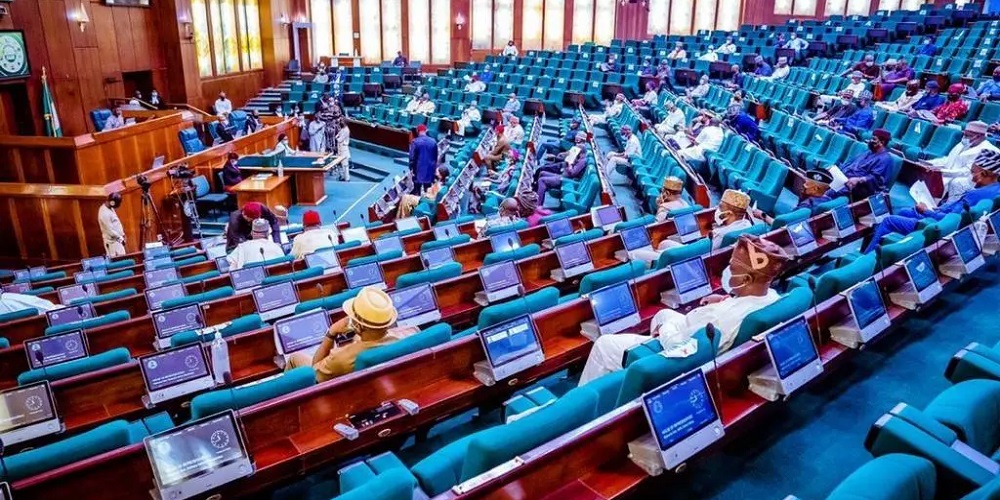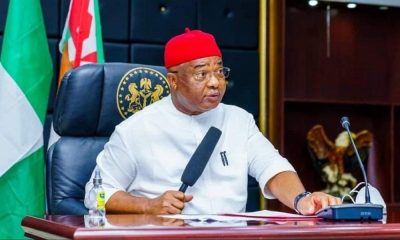News
Petrol price may hit N1,800/litre over Dangote’s subsidy removal call in Nigeria

By Mario Deepromoter
Dangote Petroleum Refinery, the sole producer of petrol being off taken and distributed for Nigerians, has declared that the government should end subsidy, a move that would cause an imminent surge in the prices of the product to as high as N1,800 litre.
The Founder of the 650,000 barrels per day capacity refinery, Alhaji Aliko Dangote, who threw his full weight behind subsidy removal just nine days after his facility started production of petrol, said in an interview with Bloomberg that this is the right time for the federal government to stop petrol subsidy.
The product, which sold for N650 per litre at the NNPCL outlets before September 15, skyrocketed to as high as N1,010 per litre in the same outlets on the day the private refinery began production. With the call for full subsidy removal, the prices could be as high as N1,800 per litre.
“I think it is the right time to (take away subsidy) because all countries have gotten rid of subsidy,” he said.
Statistics showed that the price of the product would go up to the market price which is higher than the subsidised price any time the subsidy is removed, but Dangote maintained that what actually increases a product’s price is the subsidy.
Subsidy, according to him, is a sensitive issue, adding that once a country subsidises the product, people would increase the price.
To Dangote, the subsidy would lead to the government “paying what they are not supposed to be paying.” Dangote said petrol subsidy is not sustainable and the government cannot afford to keep subsidising.
“Our price of gasoline is about 60 per cent the price of our neighbouring countries and we have porous borders, so it is not sustainable. Government cannot afford the amount of subsidies we are paying,” he said.
Speaking further on the viability of petrol subsidy, Dangote said it is the government’s decision to either continue with or halt the payments.
“We have a choice of exporting when we produce and we sell locally. We are a private company and it is true we have to make a profit,” he said.
We built something worth $20 billion, and definitely we have to make money.
“The removal of subsidy is totally dependent on the government, not on us.
“We cannot change the price but I think the government would have to give up something for something.”
Dangote said eventually, the subsidy would have to go, adding that the petrol sold locally by his refinery will be tracked to ensure the consumption rate is accounted for.
“But this refinery will bring quite a lot of issues out there. It would show the real consumption of Nigeria because nobody can tell. Some people say it is 60 million litres per day, some say it is less,” the billionaire said.
“But right now, by us producing, everything can be counted and accounted for. Most of the trucks or ships that will load from us, we will put a track on them to be sure they are going to take the oil within Nigeria and that can help the government to save a lot of money.
“For example, in Saudi, citizens believe that oil is our god-given gift and should not charge for it. The government was selling it at a very low price. But today, as we speak, gasoline is about 40 per cent cheaper in Nigeria than in Saudi Arabia, which I think does not make sense.”
On May 29, 2023, President Bola Tinubu said the petrol subsidy regime was over.
Almost three months later, TheCable reported that Tinubu was considering a “temporary subsidy” on petrol as crude oil prices and foreign exchange rates soared.
However, Ajuri Ngelale, former presidential spokesperson, said there was no reintroduction of subsidy.
Also, on January 3, the Nigerian National Petroleum Company (NNPC) Limited denied the return of the petrol subsidy, saying it had been removed entirely.
However, on April 15, Nasir el-Rufai, former governor of Kaduna state, said the federal government is spending more on petrol subsidy than before.
TheCable also reported on August 19 that Tinubu approved a request by NNPC to utilise the 2023 final dividends due to the federation to pay for the petrol subsidy — but NNPC denied the existence of petrol subsidy, only to admit hours later that the federal government owes it N7.8 trillion for subsidising petrol.
Almost a month later, Tinubu said Nigeria’s daily consumption of petrol was reduced to about 30 million litres after subsidy removal.
News
NiDCOM wants immediate probe after Nigerian TikToker dies in Kenyan apartment

The Chairman of the Nigerians in Diaspora Commission, Abike Dabiri-Erewa, has urged Kenyan authorities to investigate the circumstances surrounding the death of a Nigerian content moderator, Ladi Olubunmi, in Nairobi.
Olubunmi, who was employed by Teleperformance, a social media contracting firm in Kenya, was found dead in her apartment last week.
Reports indicate that her decomposing body was discovered three days after she had allegedly passed away, following her unexplained absence from work.
According to a report by the Associated Press on Wednesday, some of Olubunmi’s colleagues accused her employer of preventing her from travelling to Nigeria, despite her multiple requests, an allegation denied by the company.
In a statement signed by Gabriel Odu from NiDCOM’s Media and Public Relations Unit on Thursday, Dabiri-Erewa emphasised the importance of proper labour laws to protect Nigerians working abroad.
She stated that “proper mobility of labour laws in Nigeria would protect the rights and well-being of Nigerians employed abroad, ensuring proper documentation, monitoring, and support systems.”
She further noted that the establishment of such laws would help prevent cases where Nigerian workers abroad struggle with employment conditions, lack of mental health support, and restrictions on returning home when necessary.
“The Chairman, NiDCOM, extends heartfelt condolences to Ms. Olubunmi’s family, friends, and colleagues.
“She urges a thorough investigation by Kenyan authorities to determine the circumstances surrounding Olubunmi’s untimely passing,” the statement read.
Dabiri-Erewa also assured Nigerians that NiDCOM was in contact with the Nigerian High Commission in Kenya to monitor the situation and provide necessary support to Olubunmi’s family.
She appealed to Nigerians in Kenya to remain calm while the case is being investigated.
Reiterating the Federal Government’s commitment to protecting Nigerians abroad, she advised jobseekers to ensure they engage only with reputable organisations and to stay informed about their rights and available support structures.
This is not the first time a Nigerian has died under suspicious circumstances in Kenya. In July 2021, tragedy struck at a house party when two Nigerians lost their lives under unexplained conditions.
One reportedly fell from the 7th floor of Skyhorse Apartment in Kilimani, dying instantly, while the other allegedly slumped in the kitchen and was later pronounced dead.
News
Oil firm justifies land acquisition amid Delta community protest

An oil and gas firm, Axxela, has restated its commitment to global best practices in upholding legal processes, community interests, and sustainable development.
Axxela clarified while reacting to a protest by the people of the Emu-Ebendo community in Ndokwa West Local Government Area of Delta State, demanding its exit from the land it acquired in the area through another community.
The Emu-Ebendo community protested on Tuesday against the illegal acquisition of land, claiming ownership based on a 2003 Supreme Court judgment in their favour, including the portion acquired by Axxela for its business operations in the area.
The company, however, clarified a statement issued by its Corporate Communications Manager, Omolara Shitu, which was made available to journalists in Asaba, Delta State, on Wednesday.
Axxela said, “The land it acquired had legitimate titles, registered deed of assignment with the state governor’s consent in 2024.
“Our attention has been drawn regarding a community dispute concerning land acquired for a planned gas processing plant in Umuseti, Delta State.
“As a responsible corporate organisation, we wish to clarify the facts and reaffirm our commitment to global best practices that uphold legal processes, community interests, and sustainable development.
“The land in question was acquired following rigorous due diligence and in full compliance with all relevant legal and regulatory frameworks.
“This includes extensive consultation with the relevant family houses, engagement with related authorities and adherence to all statutory procedures governing such transactions.”
The company said further to this, it also obtained a registered deed of assignment for which the governor’s consent was obtained in December 2024.
The company expressed its commitment to stakeholders’ engagement, adding that it was open to dialogue to ensure a peaceful disposition with host communities.
“Axxela places high value on proactive and strategic engagement with host communities.
“Prior to the acquisition, we engaged in extensive discussions with key stakeholders, including family representatives, local leaders and community representatives, to ensure utmost transparency and mutual understanding.
“We remain committed to resolving any perceived community issues through dialogue with anyone who may feel aggrieved in this matter,” the statement said.
The company also cautioned against misinformation that could escalate tensions.
“We strongly discourage the spread of misinformation that could escalate tensions or misrepresent our brand’s integrity,” the statement read.
News
Reps propose tax exemption for military service members

The house of representatives has exempted military service members from paying personal income tax (PIT).
The decision was reached on Thursday following the adoption of a report on tax reform bills, which also provides exemptions for certain agricultural businesses and other categories of income.
Personal income tax is imposed by the government on an individual’s earnings, including salaries, wages, bonuses, dividends, and other forms of income.
Section 164 of the Nigeria tax bill outlines the categories of individuals exempted from personal income tax.
While presenting the motion for the report’s consideration, James Faleke, chairman of the finance committee, said certain agricultural businesses are also exempted from personal income tax for the first five years of operation.
“In addition, wages and salaries of military officers have been proposed to be exempt from income tax,” he said.
The report also excludes several categories of individuals and entities from personal income tax.
According to the report, profits or gains from asset disposals are exempted for statutory or registered friendly societies, provided the income is not derived from trade or business.
Similarly, the committee said registered cooperative societies will enjoy tax exemptions if their earnings do not come from commercial activities.
It also said entities engaged in educational, religious, or charitable activities of public interest are also excluded, as long as their profits are not generated from business ventures.
Compensating payments that qualify as dividends or interest in regulated securities lending transactions are exempt, the report said.
The panel also said consular fees collected on behalf of a foreign state, along with the employment income of consular officers, are not taxable unless such earnings come from trade, business, or additional employment in Nigeria.
Income exemptions also extend to funds covered under the Diplomatic Immunities and Privileges Act and pension funds and assets established under the Pension Reform Act.
The report said death gratuities, compensation for injuries, and redundancy lump sum payments or other capital compensation for loss of employment are not taxable, adding that income from bonds issued by the federal or state government of Nigeria is also exempt.
The lawmaker also individuals earning the national minimum wage or less are not required to pay personal income tax.
-

 Entertainment19 hours ago
Entertainment19 hours agoJust in: Court Orders immediate arrest of VDM
-

 Sports19 hours ago
Sports19 hours agoRonaldo pulls out from race to become president
-

 News19 hours ago
News19 hours agoSAD! Nigerian Man Slumps, D!es Inside S3x Worker’s Apartment
-

 News21 hours ago
News21 hours agoNigerian Lady Trafficked To Iraq Allegedly Defiled By Boss Pleads For Help To Return
-

 News23 hours ago
News23 hours agoWike: After Fubara Demolished Assembly Complex How Can He visit there when he’s not invited
-

 News16 hours ago
News16 hours agoWike notifies me each time he wants to visit Assembly -Ex-Speaker
-

 News11 hours ago
News11 hours agoRivers State Now Cocoa Farm: Ugochiyere Hands over to Adeyanju
-

 News23 hours ago
News23 hours ago‘Except I die, I have 3 more years,’ Uzodimma hints at Imo’s next Gov





